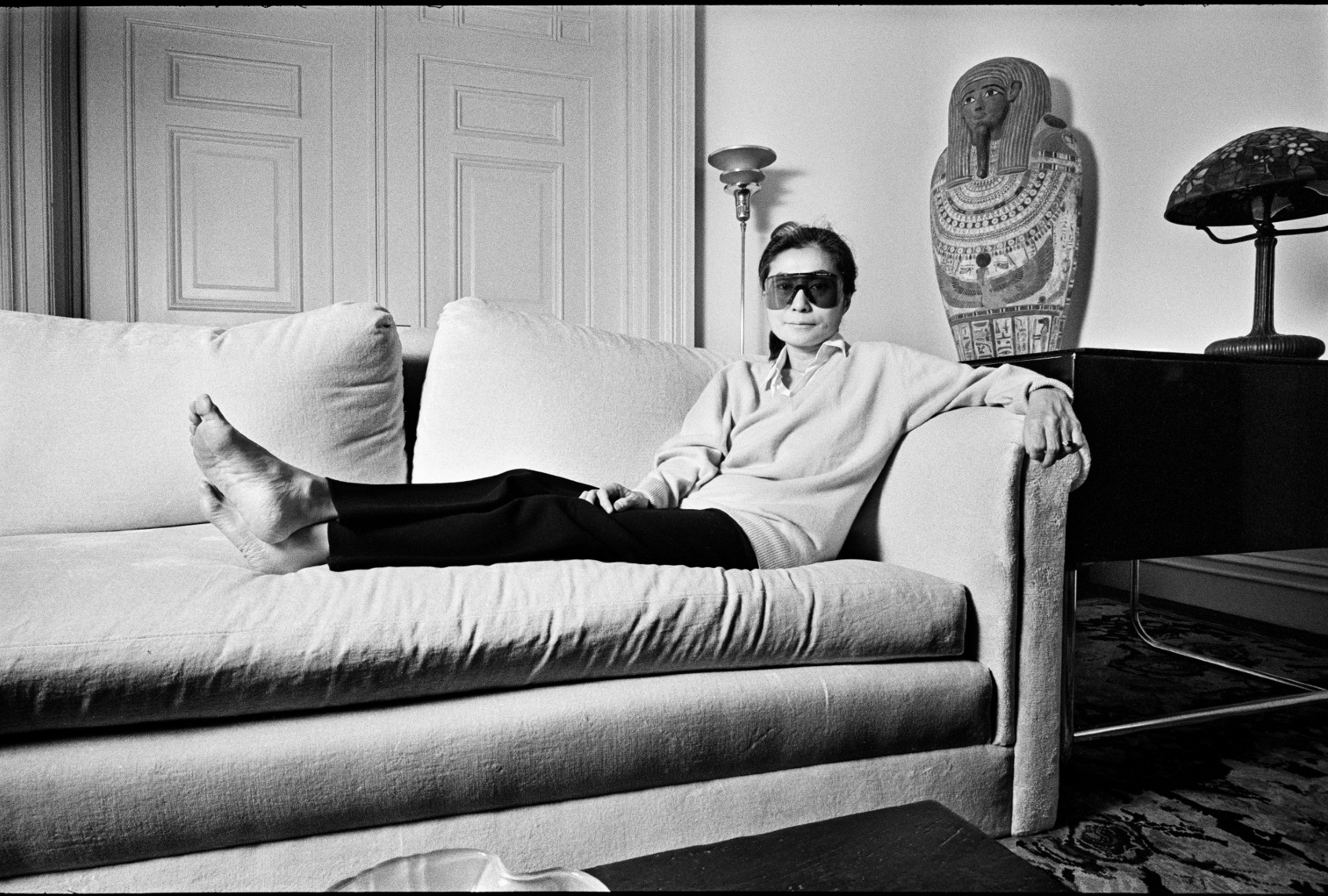In 1980, at the relatively tender age of 24, David Sheff landed a journalistic coup in the form of a multipart interview with John Lennon and Yoko Ono. The famous couple had just ended a period of self-imposed retirement and were releasing their first new album of original material in five years. Sheff’s interview proved to be a masterstroke. In one of its most significant aspects, the interview involved a lengthy analysis of Lennon’s recorded output. Within a matter of weeks, Lennon would be murdered. Quite suddenly, Sheff’s interview with the Lennons became the lasting word on the musician’s illustrious career.
In the process—particularly in the weeks after her husband’s harrowing death—Ono and Sheff became friends. When it came to telling Ono’s story, Sheff found himself at loggerheads over the ethics of authoring her biography. “Just as my friendship with Yoko allowed invaluable access and insights,” he wrote, “it forced me to face a difficult and critical question: Can a journalist tell the truth about a friend? I wasn’t interested in presenting a whitewashed version of Yoko’s story—a friend’s filtered idealization.”
With "Yoko," Sheff eschews “filtered idealization” in favor of crafting Ono’s biography with all of the artist’s foibles and failures in candid relief. “I did my best to strip the varnish away,” Sheff writes. “I did my best to accurately reconstruct events and dialogue and report what actually happened.” In this unfiltered, unvarnished portrait of the artist, Sheff succeeds magnificently in bringing one of popular music’s most divisive and misunderstood personae to life.
“I expose Yoko’s missteps and failures,” Sheff writes. “I reveal the depth and sources of her pain and fear. I also show her profound wisdom, wit, humor, inspiration, talent and joy; her resilience, compassion, her triumphs and genius.” Along the way, we learn about Ono’s crucial life in pre-war Japan, a privileged upbringing that led to her early forays in artistry and philosophy. In some of the book’s finest moments, Sheff explores her creative emergence, particularly her brash efforts to enmesh herself with Fluxus, the international art movement that celebrated the act of performance for performance’s sake.
Want a daily wrap-up of all the news and commentary Salon has to offer? Subscribe to our morning newsletter, Crash Course.
Crucially, Sheff examines the evolution of Ono’s association with Lennon in welcome, forensic detail. And what happened next, as the couple fell in love and paraded their relationship on the world stage, would involve elements of misogyny and racism that persist into the present day. “The racism and misogyny behind Yoko’s denigration over the years can’t be overstated,” Sheff writes. “When the two went out, fans yelled for Yoko to go back to her own country. John received racist letters, including ones warning him Yoko would slit his throat as he slept. They called her a ‘Jap,’ ‘Dragon Lady’ and other slurs.”
And in one of the cruelest turns, fans would forever blame Ono—would scapegoat her—for breaking up The Beatles. In this aspect, Sheff makes a convincing case that not only did Ono not cause the Fabs’ disbandment, she in fact prolonged their working relationship over their last few albums. “There’s a version of The Beatles story in which there’d be no 'Let It Be' or 'Abbey Road' without Yoko,” Sheff argues. “During the writing and recording of those albums, John had a foot out the door. If he hadn’t had Yoko, the other foot might have followed sooner than it did. Instead of being blamed and pilloried for breaking up the group, maybe Yoko should be thanked for keeping the band together during that fertile period.”
"Yoko" is required reading for die-hard Beatles fans and music lovers, to be sure, but it’s also a master class about assembling the evidence and rethinking the manner in which we think about our culture’s most iconic figures. We might very well be surprised about what we find when the dust settles.

